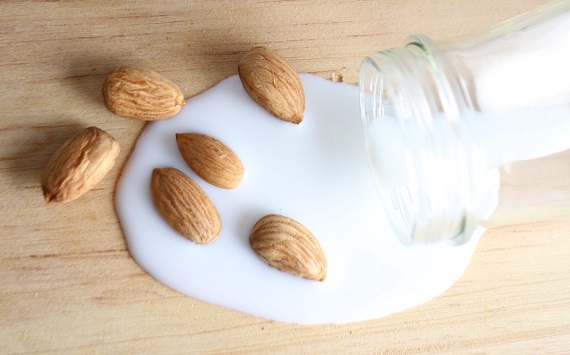


Australia's most comprehensive organic and natural directory
Blog / Beverages
20 Feb 2020A guide to milk alternatives

Dairy-free milk alternatives are all the rage right now. And not just for vegans. Many people are avoiding milk due to intolerances, serious allergies or the poor ethics surrounding the dairy industry and its environmental impacts. Others find their skin and digestion feels better staying away from dairy. After all, conventional dairy products may contain nasty hormone and antibiotic residues!
It can be tricky to find the right milk alternative for your coffee or morning cereal. Keep reading as we explore some of the options.
The Best Dairy-Free Milk Alternatives
Thanks to innovation, we can make creamy milk replacements – sometimes called mylks – from all sorts of plant foods.
Here is our list of 5 delicious milk alternatives.
Coconut Milk
Coconut milk is a common dairy alternative that's often used in Asian cooking. It's made using water and the flesh of the coconut fruit.
Coconut milk is deliciously creamy and sweet. Its coconut flavour makes it a great addition to smoothies or desserts, but the strong taste might not be for everyone.
A rich source of the minerals potassium and magnesium, coconut milk is low in carbohydrates but quite high in fat. However, it contains fats in the form of medium-chain triglycerides that are easily digested.
Almond Milk
Almond milk is a dairy-free option that has a huge following. Made from blending almonds and water, it's a rich source of minerals, antioxidants and vitamin E.
It's one of the more affordable milk substitutes and has a subtle nutty flavour. One cup of unsweetened almond milk contains just 30-50 calories.
It can be added to all the food and drink you'd normally add regular milk to. However, if you have a nut allergy you need to steer clear.
Cashew Nut Milk
Cashew milk is one of the creamiest nut milks out there. With just 25-50 calories per cup of unsweetened milk, it's a great low-calorie option. The rich, creamy, nutty taste makes it a tasty option to add to coffee.
However, the taste is stronger than almond milk and slightly richer so it may not be everyone's cup of tea (or mylk!). Plus, due to the cost of cashew nuts, it's on the expensive side.
Oat Milk
Oat milk is becoming the most popular milk alternatives on the market and can be found at many cafés as it tastes great in coffee. It contains more protein than most non-dairy milk and is creamy, mild, and slightly sweet.
It's slightly higher in carbohydrates and calories compared to other milk alternatives, at 140-170 calories per cup. However, it's great for an energy boost and also contains fibre which makes you feel fuller for longer.
If you're gluten intolerant, look for a product that is certified gluten-free or make your own oat milk.
Rice Milk
Made from milled rice and water, rice milk is a well-known milk substitute and was one of the first to hit the market. Although a slightly watery consistency, it's very tasty when added to cereal, coffee, tea and smoothies.
One cup of rice milk has about 110-140 calories and it's higher in carbohydrates than most other alternatives, which makes it sweet. This is fine for most people but makes it unsuitable for people with blood sugar issues or those following a low-carb lifestyle.
Interestingly, it's the most hypoallergenic mylk as it's free from nuts, soy and gluten.
Final Thoughts
If you struggle with acne or frequent bloating, cramps and indigestion, you may want to ditch dairy and try one of these milk alternatives.
Check out the Australian Organic & Natural Directory for trusted brands of natural and organic milk alternatives. And remember there is also the option to make your own at home using just a few ingredients!
Sources
https://www.medicalnewstoday.com/articles/325425.php
https://www.ecowatch.com/6-alternatives-to-milk-which-is-the-healthiest-1891128088.amp.html
https://www.healthline.com/nutrition/best-milk-substitutes








